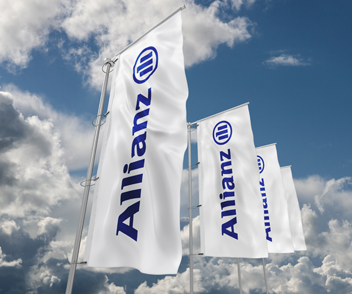Cyber awareness growing
SME companies increasingly recognize their cyber exposure and are more apt to secure adequate insurance cover than in the past, says Rajiv Iyer, Global Head of MidCorp Package, Small Business and Casualty, AGCS.
“This stems from the fact that advances in cloud computing and social media have increased small companies’ exposures while large data breach events, such as the Equifax breach and numerous other cyber security-related issues have necessitated greater protection of customer data. SME businesses see the need for adequate cyber cover to feel more protected in case of an event such as a breach.”

BI exposures still relevant

Weather woes
Natural catastrophe and weather volatility is another major concern for SME businesses. Natural catastrophesremains in third position year-on-year for both small- and mid-sized companies while climate change/increasing volatility of weather appears in both top 10 risk rankings.
“The recent significant increase in windstorm, wildfire and hurricane activity has created the need for adequate property and BI coverage for lost income,” says Iyer. Further, Iyer believes that the US decision to quit the Paris Climate Treaty, as well as to focus on coal and relax environmental regulations, may exacerbate the effects of global warming.
"’Unprecedented’ is used to describe the last couple of years in terms of natural catastrophe events and, while this activity might be cyclical in nature, for now it is a reality with no abatement in sight,” says Iyer.
Trading impacts
One risk concern that has increased significantly in both the small- and mid-enterprise space is changes in legislation – from fifth to second year-on-year for smallsized companies and from sixth to fourth for mid-sized firms. Renewed populism in many countries, as well as changes in trade agreements and outright trade wars, are affecting multinational SME businesses.
“Changes in the cost of goods based on tariff expansions and increased protectionism remain a volatile factor for our customers and businesses,” says Iyer. “This, in turn, causes swings in net income or cost of goods sold.”















